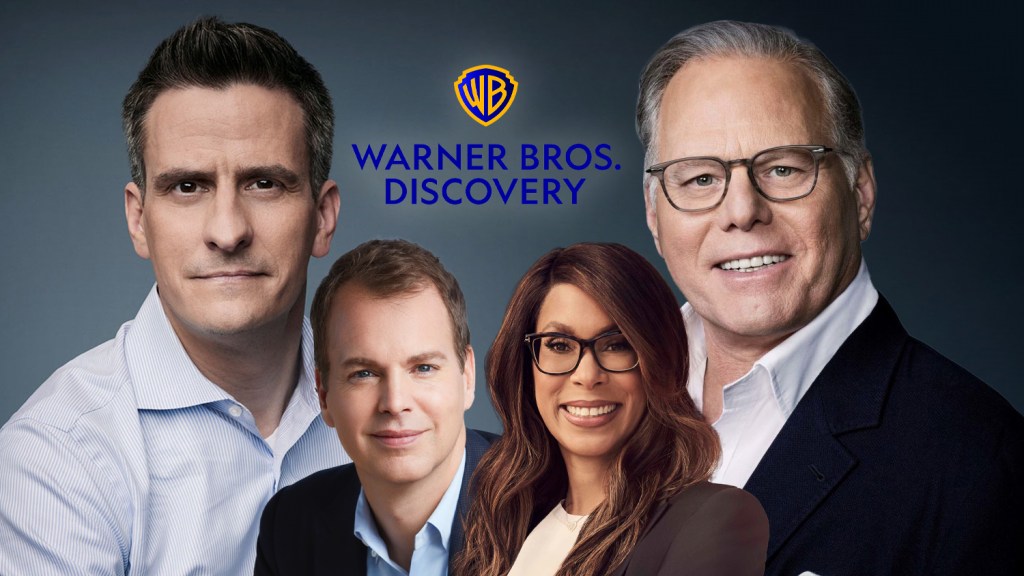Warner Bros. Discovery’s decision to split into two distinct entities has ignited a new chapter in Hollywood’s ongoing succession saga. The announcement revealed that one company will focus on studios and streaming, while the other will manage linear TV networks.
David Zaslav has been positioned as the CEO of the new “S&S” (Studios & Streamers) division, following his leadership since the 2022 merger of Discovery and WarnerMedia worth $43 billion. Gunnar Wiedenfels, the firm’s Chief Financial Officer, will take the helm of the Global Networks entity. Wiedenfels, who previously served as CFO at Discovery, is recognized for his solid financial track record.
The division is expected to be finalized by the latter half of 2026, raising questions about future leadership and strategic direction. In a discussion with investors, Zaslav emphasized that the split represents the belief that each company will be able to grow more effectively on its own. Wiedenfels added that both companies will be ready for acquisitions immediately upon separation, avoiding the lengthy waiting periods typical of previous mergers.
Although Wiedenfels is well-respected on Wall Street, analysts speculate that his new role may focus on financial optimization and potential strategic moves. Doug Creutz from TD Cowen noted this shift, while Guggenheim’s Michael Morris playfully dubbed him “Top Gunnar.”
Wiedenfels, originally from Germany, has held various finance-related roles, but has not attracted the same level of attention — or criticism — as Zaslav, particularly after the controversial cancellation of the Batgirl movie, which was scrapped mainly for tax benefits. “Media likes to talk about media, I guess,” Wiedenfels remarked back then.
The transition contrasts with Comcast’s approach for the leadership of Versant, its soon-to-be-separated NBCUniversal division, where CEO Mark Lazarus brings robust programming experience. While media CFOs sometimes ascend to CEO roles, it’s rare within companies deeply rooted in Hollywood culture.
The S&S division is steeped in intrigue, housing esteemed assets such as HBO and Warner Bros. Zaslav’s ambitions as a film mogul have been made evident, illustrated by his move to purchase the former home of late Paramount chief Robert Evans. However, he has made several missteps, including the decision to scrap projects like Coyote vs. Acme, which sparked considerable backlash. Prominent filmmakers like Steven Spielberg and Martin Scorsese have succeeded in swaying him to reconsider his direction, preserving the legacy of Turner Classic Movies.
One senior executive familiar with Zaslav’s tenure remarked that the split carries a bittersweet tone. “It feels like this is the start of his retirement, at least from this company,” they suggested. At age 65, discussions about his potential replacement have already begun, with Casey Bloys and Channing Dungey frequently mentioned as likely candidates due to their significant roles within WBD.
Bloys, recognized for his contributions at the recent upfront presentation, received praise from Zaslav, who labeled him “a generational talent,” likening HBO’s current standing to that of NBC’s peak “Must-See TV” era. Meanwhile, Dungey proactively assured her team through an internal memo that she intends to stay, expressing her enthusiasm for leading the Warner Bros. Television Group and U.S. Networks.
However, Wall Street analysts are wary of the broader context surrounding the split. Robert Fishman from MoffettNathanson questioned the timing of the announcement, especially in light of S&P’s recent downgrade of WBD’s debt and the company’s struggles with stock performance. Following the news of the split, investors initially responded positively, but the stock dipped by 2% to close at $9.77 after a brief spike.

